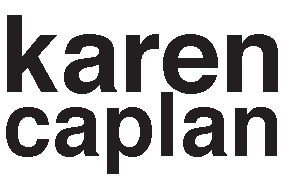Before AI was a thing, you could apply for a job online, or via a company website. You would receive a call back to set up an informational interview and then be asked to come into the office for a more in-depth interview. Or a recruiter would contact you after finding you somehow. This was before LinkedIn Recruiter.
Now, it may seem almost impossible to get an answer about a position you are interested in. I have had many people tell me that they submitted their resume via a website, and never hear anything back. This can be very frustrating.
When I get a call from someone in this situation, the first thing I do is take a look at their LinkedIn profile. Do they have more than 500 contacts? (One time I was mentoring a recent college graduate and they had less than a dozen connections. I told her it was necessary to beef that up.) 500 connections seems to be the minimum to be considered credible and viable.
Then I look at their profile photo – do they look professional…no pets, other people or alcoholic beverages visible in the photo? With all the AI tools available these days, it would be easy to make your profile photo look professional. Have you tried Aragon.ai?
Of course, I proofread their profile (hard to believe how many times I have found typos on people’s titles or the copy). Proofreading your LinkedIn profile is like proofreading your resume or email. If someone finds a typo – you are toast! It’s worth the extra 60 seconds to proofread your profile or resume. What message are you sending to a prospective employer if you are careless and not detail-oriented about your own brand?
And then – this is where the magic begins. I look to see if you have any shared contacts with your prospective employer. Back when LinkedIn started, users really needed to utilize this function.
Earlier this week, an industry colleague reached out to me about a position they were interested in. This person noticed I was connected to the prospective employer and inquired (via LinkedIn) if I really knew them and if so, would I provide an introduction?
Turns out, I did know the person, but I never recommend someone without an in-depth conversation to find out about their experience, their goals and would I feel comfortable associating my name with them. Giving a recommendation for a phone conversation is part of your own brand. After our conversation, I did feel comfortable providing an introduction.
For recent college graduates who are in the job market, it is frustrating when you don’t have enough personal connections and a broad enough network to leverage LinkedIn or other networking options. You may feel locked out, as you are limited by your own network. That’s why it’s important to not feel afraid to reach out to others (like your parents, family friends, sorority or fraternity connections, or alumni organizations) and start asking questions. Can people brainstorm with you about opportunities and connections?
Locally, here in Southern California, both USC and UCLA graduates are well known for opening doors for other fellow alumni. I’m sure the same is true anywhere in the world. As the job market is loosening up, employers have many more options when hiring and a potential hire will stand out NOT just with the correct key words on their resume. You will stand out with a personal connection or introduction.
So, in the end, don’t be afraid to leverage your connections to provide introductions for you. Afterall, it does matter “who you know”.
Onward and upward,

If you’re enjoying what you’re reading, please consider recommending it to others. They can sign up here.





